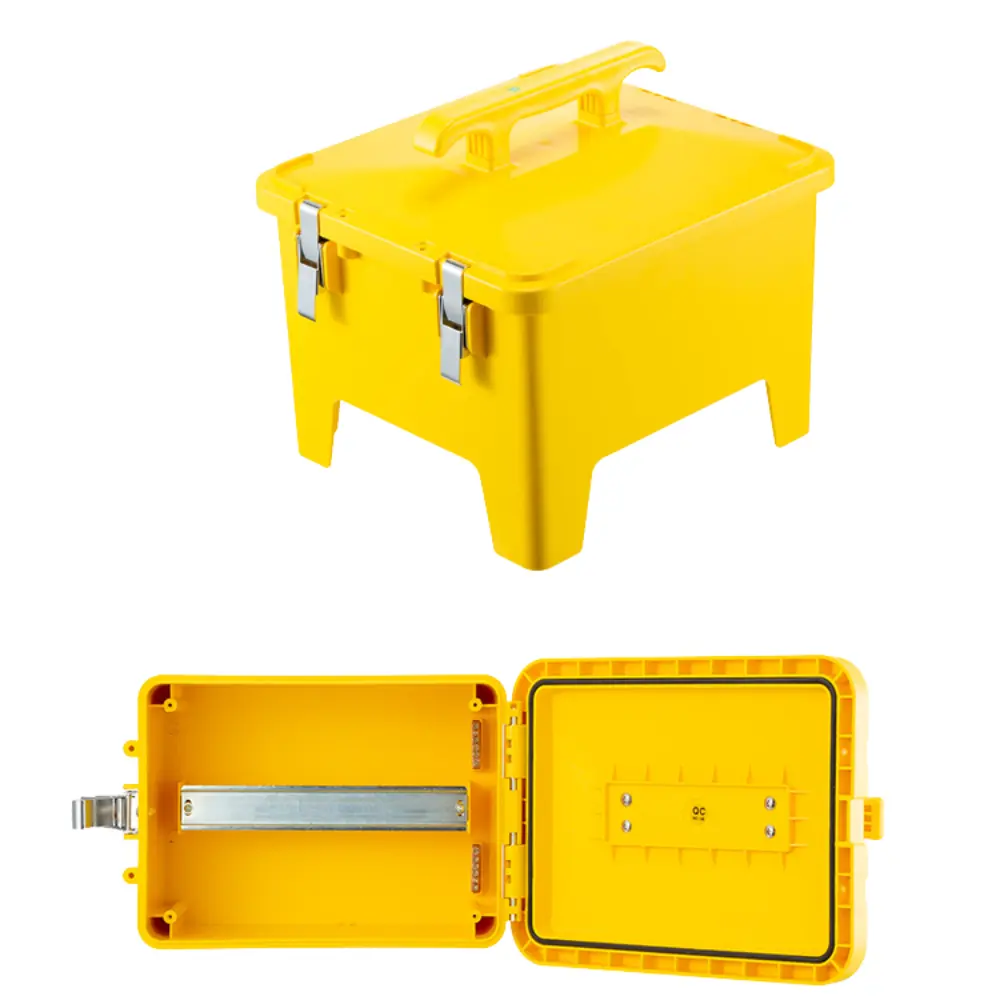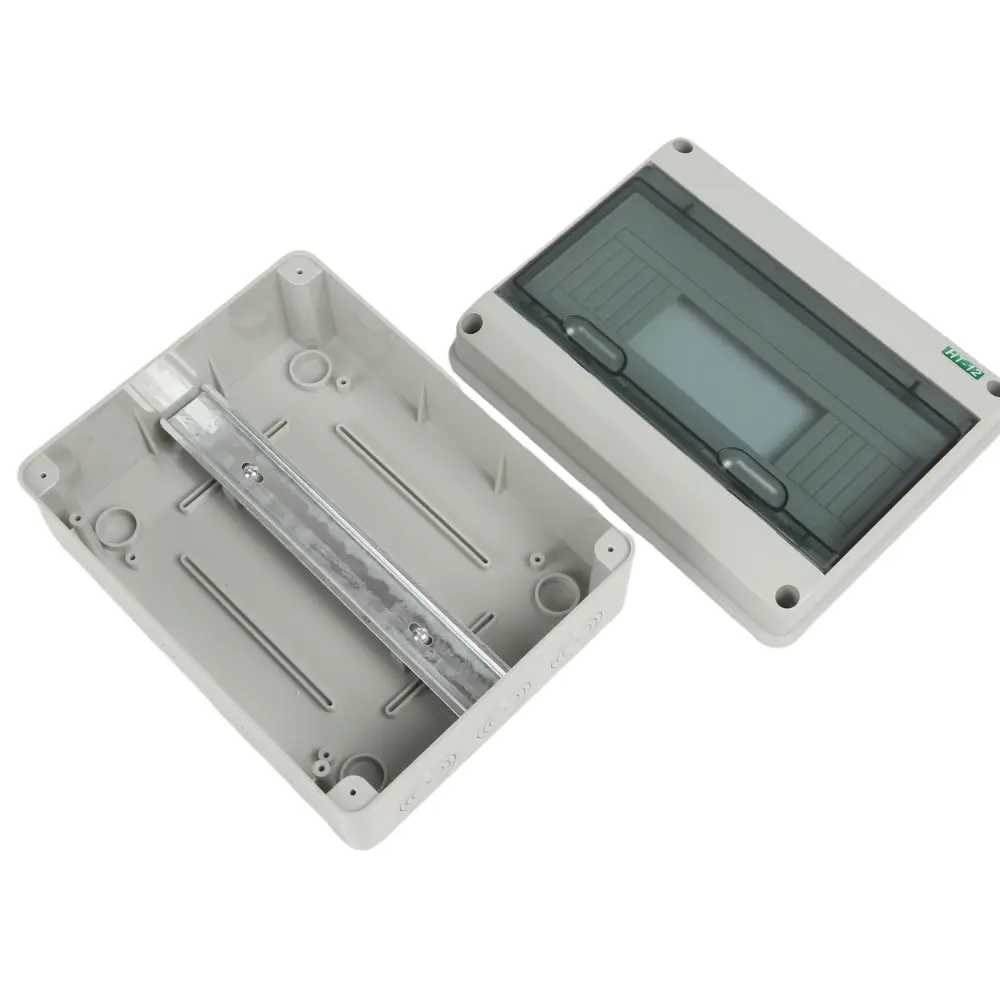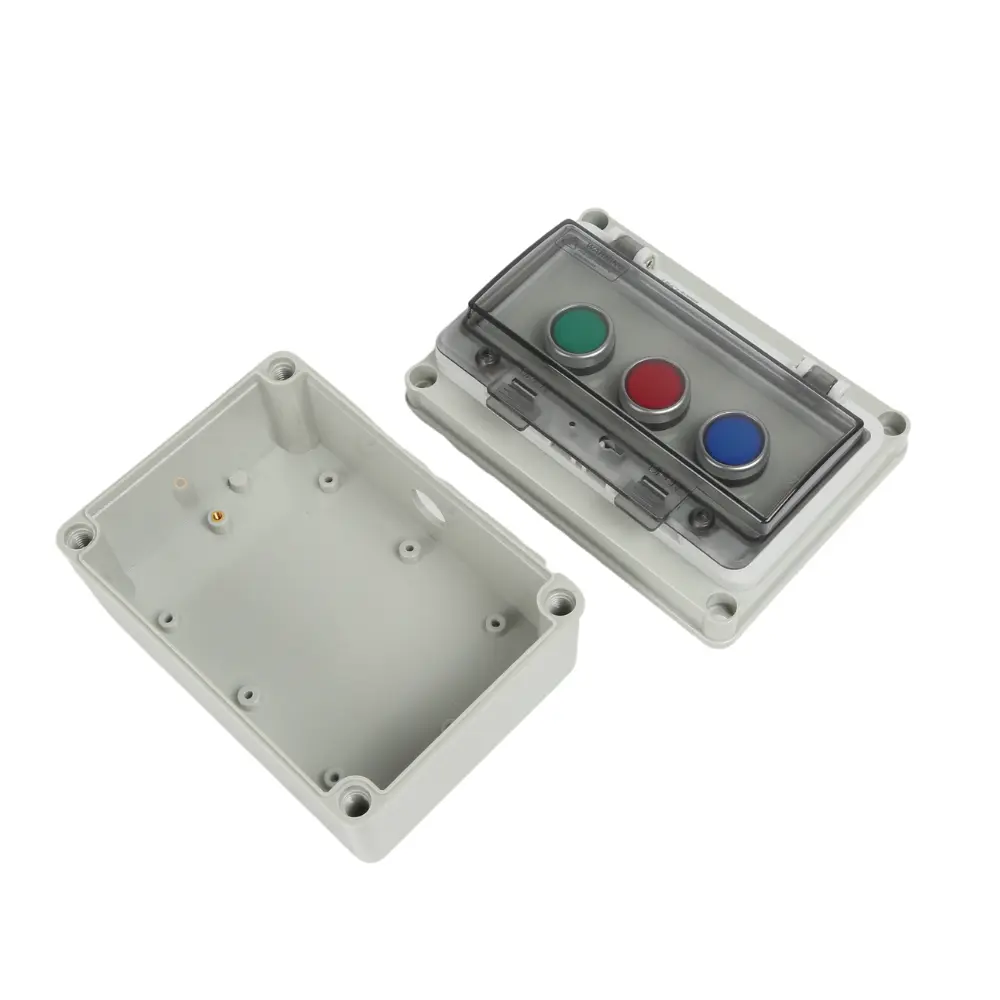Custom Junction Boxes for Your Projects
Junction boxes are essential in electrical and industrial installations. Their primary function is to insulate and protect cables, electrical devices, and electrical connections from environmental conditions and physical damage.
Not all projects can be accommodated with a standard box; customizing your junction box guarantees the safety, mounting, functionality, and aesthetic requirements of your project.
In this article, we’ll discuss every aspect of custom box design, including materials, colors, dimensions, protection levels, security options, and compatibility with extreme environments.
Why is it important to customize a junction box?
In many projects , standard junction boxes are not sufficient. I will give you the main reasons to choose a custom junction box:
The specific requirements of your space – The dimensions of standard boxes may not fit your installation.
- Enhanced Protections – Environments that require resistance to humidity, dust, or UV radiation.
- Electrical Safety – Not all installations use wall-mounted boxes; some need to be fixed to poles, racks, or DIN rails.
- The optimization of the cable order – The perforations and knockouts designed according to the system wiring reduce errors and installation times.
- Durability and simplified maintenance – Durable materials ensure a longer life with less maintenance.
How to select the right material for the box
The material explains the mechanical strength, weather protection, and lifespan of the box. Each material has its advantages for specific locations:
Aluminum - It is lightweight and highly durable
Lorem ipsum dolor sit amet, consectetur adipiscing elit. Ut elit tellus, luctus nec ullamcorper mattis, pulvinar dapibus leo.
The advantages of aluminum:
- Its corrosion resistance, ideal for outdoors.
- Its efficient thermal evaporation and its reduction of the risk of overheating
- Its slight ease of installation in high structures
- Important weight-resistance ratio
Where is it advisable to use it?
- Industrial areas. Outdoors with high humidity and corrosive substances
- Areas with high temperatures, because aluminum avoids heat accumulation.
- Projects that require endurance.
Plastic (ABS, PC, PVC) - An affordable and insulating option
The advantages of plastic:
- It has natural electrical insulation, which prevents short circuits
- It is a lightweight material that makes it easy to use
- It has high resistance and impact resistance, meaning it prevents deformation
- We also have UV-protected versions for outdoors
Where is it recommended to use it?
- Control or telecommunications systems where insulation is essential
- In interior projects or environments without extreme exposure
- Installations where a lightweight and inexpensive material is required
Fiberglass - Extremely high protection in harsh environments
The advantages of fiberglass
- Resistant to rust and corrosion
- Resistant to harsh chemicals and industrial gases
- A strong material that withstands impacts without deforming
- It is a great thermal and electrical insulator that reduces electrical failures
Where is it recommended to use?
- Chemical, mining, and oil fields exposed to harmful substances
- Humid areas or areas near the sea where metal could corrode
- High voltage, where extra insulation is required
Customize the color and finish
This influences the aesthetics, durability, and visual safety wherever the box is located.
Customize the color according to the RAL Color Chart
- This allows for the rapid identification of the box in large facilities.
- The color improves the integration with the equipment or architectural elements.
- Use specific colors to comply with safety regulations.
Powder coating - Greater protection against corrosion
- We create a layer to prevent oxidation.
- Also a great resistance against arachnid and chemical impacts
- That gives it a uniform and also professional finish.
Customization of the dimensions and thickness of the material
The junction boxes must adapt to your needs, such as the available space and the number of electrical components they will house.
The custom dimensions
- Wasting spaces by not taking the necessary measures
- An efficient installation of cables, plates, and devices
- Meet specific requirements for mounting in electrical panels
The thickness of the material
- Increases resistance and protects against impacts
- You improve thermal and electrical insulation in unfavorable environments.
Protection and Security Level
The IP rating specifies the enclosure’s resistance to dust and water.
| IP Rating | Protection Against Solids | Protection Against Liquids |
|---|---|---|
| IP54 | Protected Against Dust; Small particles | Water from any direction |
| IP67 | Completely Sealed Against Dust | Resistant to Water Jets |
| IP68 | Total Protection | Withstands Prolonged immersion |




